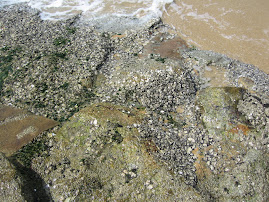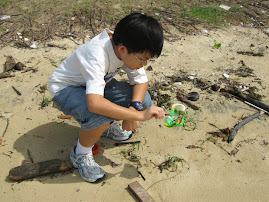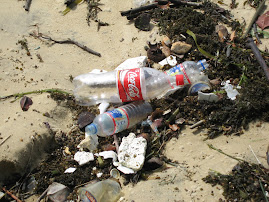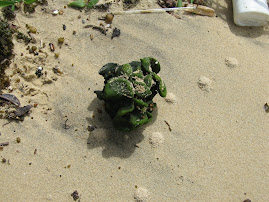Friday, September 5, 2008
Coral Reef Games Answers
Coral Reef Games
A Few Fun Games
Thursday, September 4, 2008
National Geographic is In the House!!!!!
Wednesday, September 3, 2008
A Stamp

Types of coral reefs
Fringing reef – a reef that is directly attached to a shore or borders it with an intervening shallow channel or lagoon.
Patch reef – an isolated, often circular reef, usually within a lagoon or embayment.

Apron reef – a short reef resembling a fringing reef, but more sloped; extending out and downward from a point or peninsular shore.
Bank reef – a linear or semi-circular in outline, larger than a patch reef.

Ribbon reef – a long, narrow, somewhat winding reef, usually associated with an atoll lagoon.
Atoll reef – a more or less circular or continuous barrier reef extending all the way around a lagoon without a central island.
Table reef – an isolated reef, approaching an atoll type, but without a lagoon.
Dangers to Coral Reefs

2. Don't use chemically enhanced pesticides and fertilizers. Although you may live thousands of miles from a coral reef ecosystem, these products end up in the watershed and may ultimately impact the waters that support coral.
3. Volunteer for a reef cleanup. You don’t live near a coral reef? Then do what many people do with their vacation: visit a coral reef. Spend an afternoon enjoying the beauty of one of the world’s treasures while helping to preserve it for future generations.
4. Learn more about coral reefs. How many different species live in reefs? What new medicines have been discovered in reef organisms. Participate in training or educational programs that focus on reef ecology. When you further your own education, you can help others understand the fragility and value of the world’s coral reefs.
5. Become a member of your local aquarium or zoo. Ask what they are doing and what your donation can do toward saving the world’s coral reefs. The answer may pleasantly surprise you.
6. When you visit a coral reef, help keep it healthy by respecting all local guidelines, recommendations, regulations, and customs. Ask local authorities or your dive shop hot to protect the reef.
7. Support conservation organizations. Many of them have coral reef programs, and your much-needed monetary support will make a big difference.
8. Spread the word. Remember your own excitement at learning how important the planet’s coral reefs are to us and the intricate global ecosystem. Sharing this excitement gets everyone you speak with involved.
9. Be an informed consumer. Consider carefully the coral objects that you buy for your coffee table. Ask the store owner or manager from what country the coral is taken and whether or not that country has a management plan to insure that the harvest was legal and sustainable over time.
10. Don't pollute. Never put garbage or human waste in the water. Don't leave trash on the beach.
11. Recycle. This is the first step each of us can take to make a change. Recycle anything and everything. If your community doesn't have a program, do it anyway, and get one started.
12. Conserve water. The less water you use, the less runoff and wastewater that eventually finds its way back into our oceans.
13. Report dumping or other illegal activities. Environmental enforcement cannot be everywhere, and your involvement can make a big difference.
14. Keep it clean. You may be in the habit of picking up your own trash. You may even participate in an organized cleanup. But have you considered carrying away the trash that others have left behind?
15. Only buy marine aquarium fish if you know they have been collected in an ecologically sound manner. In some areas, marine fish harvested for the pet trade, are stunned with sodium cyanide so that capturing them is easier.
16. Surf the net! Many different addresses exist to link you to information about coral reefs and what you can do to become involved. A good starting point is at http://www.noaa.gov/public-affairs/coral-reef.html
17. Don't start a liverock aquarium. Although this living rock is still harvested legally in some places, its collection is devastating to the reef organisms habitat.
18. Hire local guides when visiting coral reef ecosystems. Not only do you learn about the local resources, but you will be protecting the future of the reef by supporting a non-consumptive economy around that reef.
19. Don't anchor on the reef. If you go boating near a coral reef, use mooring buoy systems when they are available.
20. If you dive, don't touch! Take only pictures and leave only bubbles! Keep your fins’ gear, and hands away from the coral, as this contact can hurt you and will damage the delicate coral animals. Stay off the bottom because stirred-up sediment can settle on coral and smother it.
21. Participate in the Great American Fish Count. What better way to enjoy your vacation time than snorkeling or diving in America's coral reefs and helping scientists better understand reef fish populations?
22. Volunteer. Volunteer and community coral reef monitoring programs are very important. If you do not live near a coast, get involved in your local save the river (bay, lake, or other estuarine environment) program. Remember, all watersheds affect the oceans and eventually the coral reefs.
23. Support the creation and maintenance of marine parks and reserves. Encourage your friends to get involved with projects to protect special areas.
24. Be a wastewater crusader! Make sure that sewage from your boat, from others' boats, and from land is correctly treated. The nutrients from sewage feed growing algae that can smother and kill corals.
25. Inform yourself. Find out about existing and proposed laws, programs, and projects that could affect the world's coral reefs.
Our conservation efforts on the beach
Reporter 1: May we know what are your views on the conservation of marine life?
Kind Gentlemen: Well, you see, I was just looking for a clean spot on the beach for my children to play with the sand. But it is so dirty I can't find a good spot.
Reporter 1: So you find it very inconvenient?
Kind Gentlemen: Yes.
Reporter 2: If there are any conservation activities, will you take part in them?
Kind Gentlemen: Yes, of course. And I will encourage my children to do so too.
Reporters 1 and 2: Thank you
Tuesday, September 2, 2008
Monday, September 1, 2008
The Origin of Coral Reefs

Great Barrier Reef
The current reef's structure is much younger at less than around 8,000 years old.Most modern reefs have formed on hard surfaces in the ocean, such as a base of an old reef that died during a period when sea level was lower, or the edge of a rocky island. Depending on how they start out, several types of reefs can form. Some coral reefs form in the deep ocean and are called atolls. The theories on how coral reefs form were first put forward by Charles Darwin (of The Origin of Species fame) who proposed that atolls form around the edges of high volcanic islands that gradually submerge beneath the sea with changes in sea level or subsidence of the land.
 Thus an atoll starts life as a fringing reef, then becomes more of a ring growing on the shrinking land-mass, until the land disappears and just the coral circle remains. In some cases, the coral growth is unable to keep pace with the sinking island, and sunken dead reefs have been found.
Thus an atoll starts life as a fringing reef, then becomes more of a ring growing on the shrinking land-mass, until the land disappears and just the coral circle remains. In some cases, the coral growth is unable to keep pace with the sinking island, and sunken dead reefs have been found.















